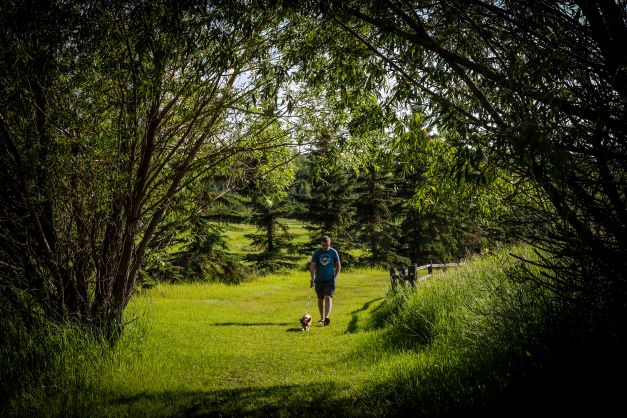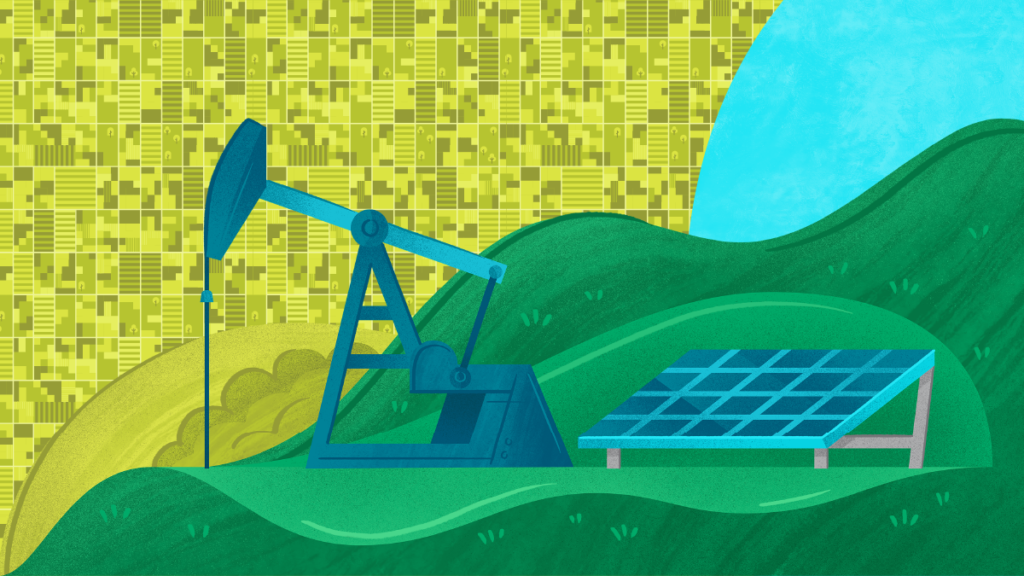Rapid technological innovation in world-wide energy systems is creating unforeseen obstacles and opportunities. In Southern Alberta, production is declining in conventional oil and gas fields leaving companies and landowners burdened with massive reclamation liabilities.
At the same time, renewable energy developers, attracted to the world-class wind and solar resources, are competing for access to agricultural land.
The RenuWell Project demonstrates how re-purposing legacy oil and gas infrastructure to community solar development can provide significant benefits to communities, energy industries, the environment, and the economy. This award-winning project received a $2,265,000 investment from the Government of Alberta through the Municipal Climate Change Action Centre for its successful application to the Municipal Community Generation Challenge.
Development of an efficient process for re-purposing of legacy oil and gas infrastructure for solar PV will benefit:
- the oil and gas industry by reducing reclamation costs,
- the renewable energy sector by improving land access and network connections,
- rural municipalities through economic development and tax revenue,
- irrigation farmers by providing distributed power generation and reducing need for costly utility system upgrades and,
- businesses by creating opportunities to export unique skills and technology to international markets.
This project energized in November 2023.
Tip: Watch the webinar recording. In this webinar, you’ll learn how the team planned the project, how they built collaborative relationships, lesson learned and how your municipality could duplicate their work.
Project
This project:
- developed 1.45 MW of distributed solar generation on abandoned oil and gas lease sites with Irrigation Canal Power Co-op Ltd (IRRICAN) in the M.D. of Taber by working with partners Elemental Energy, Canadian Solar, and SkyFire Energy
- was recognized by the Alberta Emerald Foundation in 2024 with an Alberta Emerald Award
- was recognized by the Canadian Brownfields Network with a Brownie Award in 2023
- trained oil and gas workers to equip them for jobs in the renewable energy sector through a term collaboration between Iron and Earth and Medicine Hat College
- is generating direct revenue for site owners and tax revenue for the municipality from sale of electricity of the completed projects
- increased distributed solar generation without removing additional land from agriculture
- accelerated reclamation of inactive oil and gas wells
- is providing additional revenue for the M.D. of Taber and Irrigation Canal Power Co-op Ltd (IRRICAN)
- created energy diversification and economic development opportunities
- provided workforce training and transitioning energy sector workers to the renewable energy industry
Benefits to Alberta
The successful implementation of this technology process and the knowledge generated could create the following benefits if expanded at full scale across Alberta:
- 6,200 MW of solar PV generation capacity resulting in annual generation of 8,100,000 MWh
- GHG emission reduction of approximately 4,300,000 tCO2e/year
- $9.9 billion investment in solar construction
- $1.1 billion investment in accelerated oil and gas reclamation
- cost savings up to 40% for oilfield reclamation and 25% for solar construction
- $155 million in oilfield reclamation savings due to re-using roads, powerlines, and leases
- 77,500 direct full-time construction and 1,860 permanent jobs
- partnership between agriculture, conventional, and renewable energy sectors
- opportunity for Alberta companies to export the methodology and techniques to other markets
Knowledge Transfer
The majority of Southern Alberta’s rural municipalities are impacted by the downturn in the oil and gas sector which impacts economic development, employment opportunities, and tax revenue. These municipalities and landowners are struggling with the effects of abandoned and orphaned legacy infrastructure. This project’s knowledge transfer plan helps:
- increase economic development and employment opportunities in rural communities
- create opportunities for young people entering the work force
- reduce conflict between agriculture and energy development
- socialize repeatable and consistent methods for integrating distributed solar generation and repurposing of legacy infrastructure
- improve the national and international reputation of Alberta’s oil and gas industry




You must be logged in to post a comment.